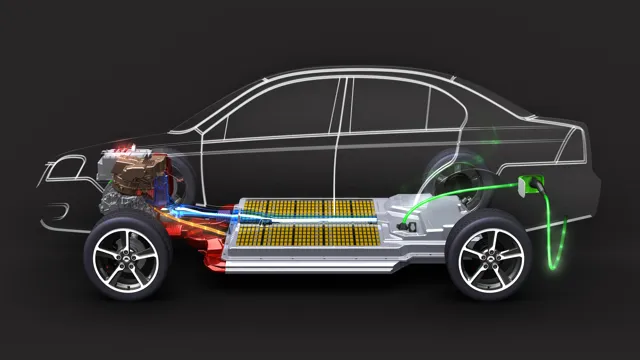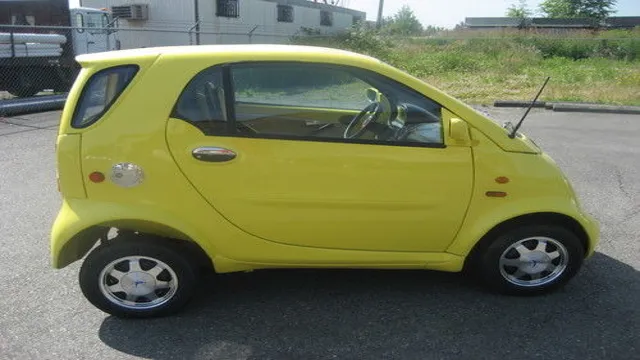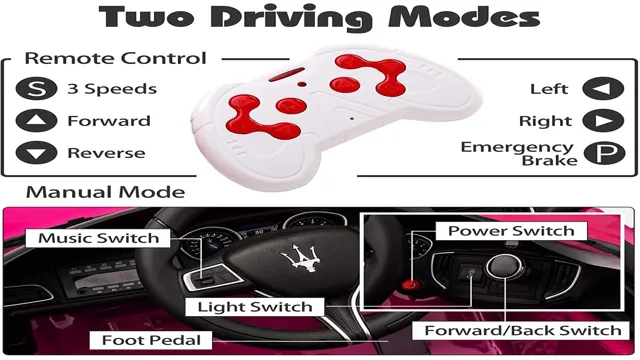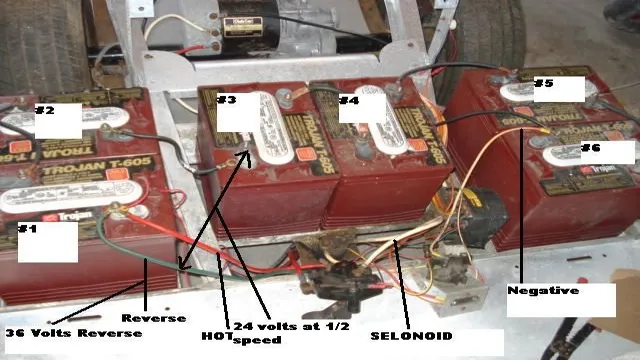Cleverly Repurposed: The Surprising Alternative Uses of Spent Electric Car Batteries
Have you ever imagined what happens to electric car batteries once they reach the end of their useful life? While most people think of discarding these batteries, it’s good to know that there are alternative uses for spent electric car batteries. A battery is said to be spent once it no longer holds a charge to power an electric car, but that doesn’t make it useless. Thanks to technology advancements, these batteries can still serve a significant purpose in the energy industry.
In this blog post, we’ll take a closer look at the alternative uses for spent electric car batteries and how they can contribute to making the world a greener and more sustainable place to live. So buckle up, and let’s explore the world of spent electric car batteries!
Energy Storage
As electric cars become more popular, the issue of what to do with their batteries after they wear out becomes increasingly important. Fortunately, there are alternative uses for spent electric car batteries that can be beneficial for both the environment and consumers. One of these uses is energy storage.
Since electric car batteries are designed to last for many years, they have the potential to store large amounts of energy. This means that they can be used to store and release energy to power homes and buildings. It’s a win-win situation- consumers can save money on electricity bills while also using renewable energy sources like solar and wind power.
With the increasing demand for renewable energy, utilizing spent electric car batteries for energy storage is a smart solution to reduce waste while also meeting energy needs.
Storing energy from renewable sources
Energy storage is a critical component in the transition to renewable sources like solar and wind power. The unique characteristic of renewable energy is its variability with time, which makes it difficult to depend on it consistently. Energy storage technology helps solve this problem by providing an efficient way to store excess energy generated during periods of low demand for use during peak periods.
Different energy storage systems are available, such as batteries, pumped hydro storage, and compressed air energy storage, to mention a few. Each of these systems has unique benefits and drawbacks. For instance, batteries are more flexible and suited for smaller-scale applications, while pumped hydro storage is more suited for large-scale long-duration storage.
As the renewable energy sector continues to grow, advances in energy storage technology will become increasingly crucial in developing a robust, sustainable energy infrastructure.
Powering off-grid homes
Energy storage is a crucial element in powering off-grid homes. These homes are not connected to the conventional power grid and thus rely on renewable energy sources such as solar panels, wind turbines, or hydroelectric systems. Energy storage systems help these homes store excess energy generated during the day so that it can be used at night or on cloudy days.
One popular energy storage option is a battery system, which allows for the energy to be stored and used when needed. This is particularly useful during power outages or during periods of high energy demand. An efficient energy storage system not only provides a consistent flow of power but also helps in reducing energy expenses in the long run.
So, investing in a reliable battery system can be a wise decision for those living off-grid.
EV Charging Stations
Alternative uses for spent electric car batteries are being explored, and one of the most promising options is the use of these batteries in EV charging stations. While electric cars are becoming more common, charging infrastructure is still lacking in some areas. However, by repurposing spent batteries, charging stations can be created more easily and at a lower cost.
These batteries can store enough energy to charge multiple cars, and can be charged using renewable energy sources, making them an eco-friendly option. Additionally, this creates a more circular economy, where used batteries are given new life rather than ending up in landfills. The potential for alternative uses for spent electric car batteries is expanding rapidly, and repurposing them for charging stations is just one of many exciting possibilities.
Charging electric vehicles
Electric vehicle charging stations are becoming increasingly common in many cities and towns. These stations allow electric vehicle owners to quickly and easily charge their cars while they’re out running errands or taking trips. Many stations offer multiple charging options, including fast charging, which can top up a car’s battery in as little as 30 minutes.
Additionally, some stations offer exclusive charging options, including Tesla’s Supercharger network, which provides an even faster charging experience for Tesla owners. While public charging stations are certainly convenient for EV owners, they can also help reduce the environmental impact of driving. By making it easier to charge electric vehicles, more people may be encouraged to make the switch from gas-powered cars to EVs, helping to reduce greenhouse gas emissions and improve air quality.
Providing backup power for charging stations
EV Charging Stations Electric vehicles (EVs) have seen a surge in demand due to advancements in technology, environmental awareness, and initiatives that provide incentives for driving clean vehicles. However, there still exists a challenge in terms of providing reliable charging infrastructure to match the rapidly rising number of EVs on the road. One of the solutions to this issue is backup power for charging stations.
Providing backup power to the charging stations ensures that in case of power outages, EV owners can still charge their vehicles without any inconvenience. Backup power systems can be powered by various sources such as solar panels, generators or batteries. Such systems can be installed in different locations, such as in parking lots, at service stations or in other public spaces.
Therefore, having EV charging stations paired with reliable and efficient backup power options is vital to ensure a smooth and hassle-free charging experience for EV owners.
Home Energy Systems
Alternative uses for spent electric car batteries are increasing as more and more people look for ways to reduce their carbon footprint and save money on their energy bills. One such use is using them in home energy systems. After years of use, electric car batteries may no longer hold enough power to be used for transportation purposes, but they can still hold enough power to be used in a home energy storage system.
These batteries can be used to store excess energy generated by home solar panels and wind turbines, which can then be used during peak periods of energy usage. This can not only help homeowners save money on their energy bills but also reduce their dependence on the grid and lower their environmental impact. While this is a relatively new technology, it has the potential to revolutionize the way we use and store energy in our homes.
Powering homes with stored energy
Home Energy Systems If you’re looking to cut your electricity bill and decrease your carbon footprint, you may want to consider installing a home energy system. A home energy system utilizes stored energy to power your home, reducing your reliance on the grid and giving you more control over your energy consumption. These systems typically consist of solar panels and batteries that store excess energy generated during the day for use at night when the panels aren’t producing.
By using stored energy, you can avoid peak electricity rates and potentially even sell excess energy back to the grid. Plus, with advances in technology, home energy systems are becoming more affordable and easier to install than ever before. So if you want to take charge of your energy use and save money in the long run, a home energy system may be the perfect solution for your household.
Providing backup power during outages
Home Energy Systems provide a reliable backup power source during outages, giving homeowners peace of mind. These systems can generate power through solar panels or batteries, allowing families to continue with their daily routines without any disruption. They are also environmentally friendly, reducing carbon footprints and energy bills.
Home Energy Systems are an excellent investment, saving homeowners money in the long run while providing essential backup power during emergencies. With the increasing frequency and severity of natural disasters, having a backup power source is more important than ever. Make the smart choice and invest in a Home Energy System for your home today.
Recycling Batteries
As the popularity of electric cars continues to rise, the question of what to do with spent batteries becomes increasingly important. Fortunately, there are a number of alternative uses for these batteries that can help reduce waste and bolster renewable energy sources. One example is to repurpose used electric car batteries for home energy storage.
By outfitting a house with a battery-based home energy system, homeowners can effectively store electricity generated by solar panels or wind turbines for later use, reducing reliance on the grid and increasing energy self-sufficiency. With this alternative use for spent electric car batteries, we can create a sustainable energy ecosystem where waste is minimized and renewable resources are maximized.
Extracting valuable metals
Recycling batteries is one of the best ways to extract valuable metals that can be used for various purposes. When batteries are recycled, they go through a process of dismantling, which involves separating the various components of the batteries such as plastic, metal, and chemical compounds. The metals that are extracted during this process include lithium, cobalt, nickel, and copper.
These metals are important materials that are used in the production of various products such as electronics, batteries, and electric vehicles. Recycling batteries not only helps to extract valuable metals but also reduces the amount of waste that ends up in landfills. When batteries are thrown away, they can release harmful chemicals that can pollute the environment and harm wildlife.
By recycling batteries, we can reduce the amount of waste that ends up in landfills and prevent pollution. In addition to the environmental benefits, recycling batteries also has economic benefits. The valuable metals that are extracted during the recycling process can be sold to manufacturers who use them in the production of various products.
This helps to reduce the demand for virgin metals, which can be expensive and environmentally damaging to extract. In conclusion, recycling batteries is an important step that we can take to extract valuable metals, reduce waste, and protect the environment. By recycling batteries, we can reduce our environmental footprint and contribute to a more sustainable future.
So the next time you have a dead battery, don’t throw it away, recycle it instead and play your part in protecting the planet.
Reusing battery components
Recycling Batteries One of the most pressing issues in modern-day technology is that of battery disposal. The harmful chemicals, metals, and plastics used in batteries can cause significant damage to the environment and public health when not disposed of properly. This is where recycling batteries can play a significant role.
Recycling batteries involves taking apart old batteries to reuse their components in new products. This process can reduce the environmental impact of battery disposal and also save energy and resources that would otherwise be used in the production of new batteries. Reusing battery components is not only more eco-friendly but also cost-effective, as many of the materials used in batteries are expensive and difficult to mine.
By recycling batteries, we can reduce waste, conserve resources, and preserve the environment for future generations.
Conclusion
Well folks, if you thought the life of an electric car battery ended with the car, think again. These spent batteries may no longer be able to power vehicles, but they still have plenty of potential. From energy storage for the grid to powering household appliances, these batteries can continue to make a difference.
In fact, some companies are even repurposing them into affordable home energy systems. So don’t let those spent electric car batteries go to waste – let’s give them a second life and continue to drive towards a more sustainable future!”
FAQs
What are some alternative uses for spent electric car batteries?
Spent electric car batteries can be repurposed for stationary energy storage systems, backup power supplies for homes and businesses, and even grid-scale energy storage solutions.
How long do electric car batteries last before needing to be replaced?
The lifespan of electric car batteries can vary depending on factors like the make and model of the vehicle, driving habits, and environmental conditions. However, most electric car batteries are designed to last at least 100,000 miles or more before needing to be replaced.
What impact do spent electric car batteries have on the environment?
Spent electric car batteries can contain toxic chemicals and heavy metals that can be harmful to the environment if not properly disposed of. However, efforts are being made to develop more sustainable and environmentally-friendly ways of repurposing and recycling these batteries.
How does the cost of electric car batteries compare to traditional gasoline engines?
The cost of electric car batteries has been steadily decreasing in recent years, making them more affordable for consumers. While the upfront cost of an electric car may be higher than a traditional gas-powered vehicle, the lower cost of maintenance and fuel over time can make up for the difference.




